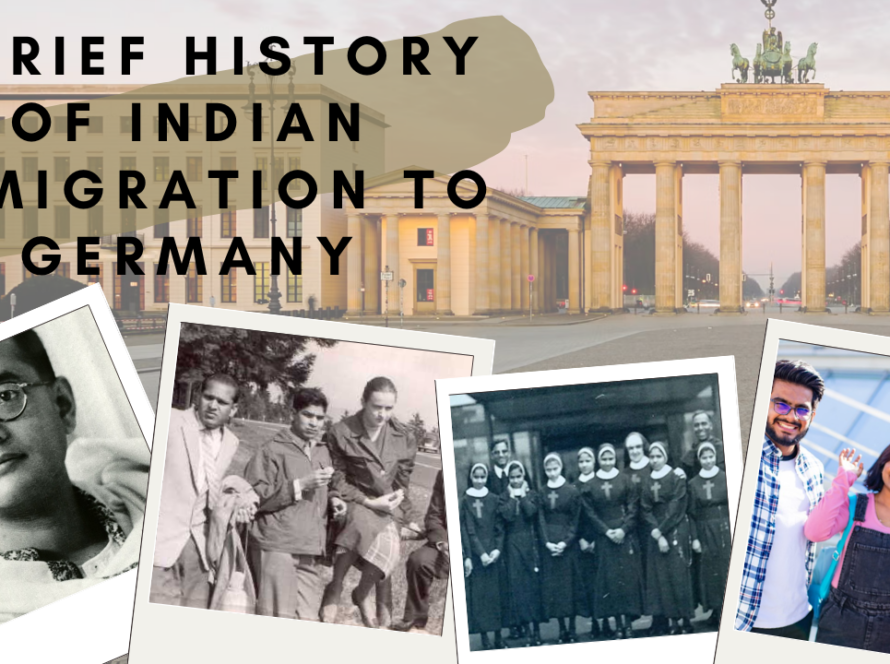A Comparative Analysis of the 2025 Election Manifestos of Major German Political Parties
Introduction
In a globalized economy, Germany remains a prime destination for highly skilled professionals—including many from India. As the 2025 federal election approaches, the manifestos of Germany’s major political parties provide insights into future policies on migration, integration, labor market regulations, and economic strategy. These policies will play a crucial role in shaping the professional landscape for foreign experts. This study compares the manifestos of leading parties—the Social Democratic Party (SPD), the Christian Democratic Union/Christian Social Union (CDU/CSU), Alliance 90/The Greens, Free Democratic Party (FDP), Alternative for Germany (AfD), and Die Linke—and discusses factors that may affect qualified Indian professionals either positively or negatively.
Methodology
This analysis draws on the publicly available 2025 election manifestos and policy documents of the major parties. Key areas of focus include:
- Immigration and Visa Policies: Measures aimed at streamlining or restricting access for skilled professionals.
- Qualification Recognition: Policies to validate and integrate foreign educational and professional credentials.
- Integration and Support Programs: Initiatives for language training, cultural orientation, and professional development.
- Economic and Labor Market Policies: Plans for boosting economic growth, innovation, and job creation.
- Social and Cultural Policies: Approaches to diversity, anti-discrimination, and social inclusion.
By comparing these areas, the study highlights how each party’s agenda might impact the experience of qualified Indian professionals in Germany.
Comparative Analysis of Party Manifestos
1. Social Democratic Party (SPD)
Key Policies:
- Enhanced Integration Support: The SPD manifesto emphasizes robust support for integration, including comprehensive language courses, cultural orientation programs, and streamlined processes for the recognition of foreign qualifications.
- Worker Protections and Social Justice: The focus on social equity and labor rights is designed to ensure that all workers—including foreign professionals—receive fair treatment and access to professional development.
- Public Investment in Training and Research: Increased funding for education and vocational training benefits high-skilled professionals by keeping them competitive in a rapidly evolving job market.
Implications for Indian Professionals:
- Positive: Comprehensive integration measures and strong worker protections can help Indian professionals adapt quickly, ensuring smoother entry into the labor market.
- Negative: The increased bureaucratic oversight associated with detailed integration procedures might slow down the initial phase of professional entry.
2. Christian Democratic Union/Christian Social Union (CDU/CSU)
Key Policies:
- Economic Stability and Growth: The CDU/CSU manifesto focuses on creating a stable, growth-oriented economic environment with a secure framework for business and innovation.
- Streamlined Visa and Work Permit Processes: There is an emphasis on reducing administrative hurdles for skilled workers, including foreign experts.
- Targeted Support for Key Sectors: Policies aimed at bolstering technology, industry, and research sectors are likely to increase demand for high-skilled professionals.
Implications for Indian Professionals:
- Positive: Easier access to work permits and a stable economic environment provide clear advantages for Indian professionals, particularly in tech and engineering.
- Negative: The commitment to tighter integration requirements (e.g., language proficiency, cultural orientation) may introduce delays if support mechanisms are not sufficiently robust.
3. Alliance 90/The Greens
Key Policies:
- Inclusive and Diverse Society: The Greens strongly advocate for diversity, anti-discrimination policies, and initiatives that support multicultural integration.
- Environmental and Social Innovation: Their focus on sustainable development and innovation creates opportunities in emerging green technologies and related fields.
- Support for Social Programs: Investment in language and integration courses is a major pillar, intended to ensure that foreign professionals are not isolated culturally or socially.
Implications for Indian Professionals:
- Positive: A commitment to social inclusion and diversity can foster a welcoming environment, with ample support for language and cultural integration.
- Negative: The ambitious scope of social programs might face budgetary constraints, potentially leading to delays or uneven implementation across regions.
4. Free Democratic Party (FDP)
Key Policies:
- Liberal Economic Approach: The FDP manifesto stresses deregulation and market-driven policies aimed at boosting entrepreneurship and innovation.
- Reduction of Bureaucratic Barriers: Proposals include simplifying the recognition of international qualifications and expediting visa processes for skilled workers.
- Focus on Innovation and Technology: By promoting a pro-business environment, the FDP seeks to make Germany a global hub for tech startups and research initiatives.
Implications for Indian Professionals:
- Positive: The emphasis on reducing red tape and fostering an innovation-friendly environment is particularly beneficial for professionals in technology and entrepreneurship.
- Negative: A strong market-oriented approach may underemphasize social integration supports, leaving gaps in language training and cultural adaptation for some professionals.
5. Alternative for Germany (AfD)
Key Policies:
- Strict Immigration Controls: The AfD manifesto prioritizes tighter immigration restrictions and heightened cultural integration requirements.
- Nationalistic Rhetoric: Emphasis on preserving traditional German culture may result in policies that are less accommodating of foreign professional influx.
- Increased Bureaucratic Measures: Policies may involve more stringent documentation and approval processes, particularly for non-European professionals.
Implications for Indian Professionals:
- Positive: Limited benefits exist for high-skilled professionals under this platform; any potential advantage would likely come from an emphasis on order and regulated entry.
- Negative: The restrictive immigration stance and potential for xenophobic policies could create significant hurdles, from longer visa processing times to possible social exclusion and discrimination.
6. Die Linke
Key Policies:
- Worker Rights and Social Equity: Die Linke emphasizes enhancing labor rights and expanding social welfare, ensuring a level playing field for all workers.
- Focus on Social Investment: The party advocates for increased investment in education, training, and social services that support long-term integration.
- Inclusive Economic Policies: Their approach is designed to balance economic growth with comprehensive social protections, aiming to secure fair opportunities for foreign professionals.
Implications for Indian Professionals:
- Positive: Strong labor protections and social services can provide a safety net, ensuring fair treatment and access to professional development.
- Negative: A less market-driven economic strategy might impact sectors that rely on rapid innovation, potentially limiting opportunities in high-tech industries.
Factors Affecting Qualified Indian Professionals
Drawing on the comparative analysis, several factors emerge that will likely impact Indian professionals in Germany:
Positive Factors
- Streamlined Visa Processes and Recognition of Qualifications:
- CDU/CSU and FDP Proposals: Initiatives to simplify visa procedures and speed up the recognition of foreign qualifications can reduce entry barriers for Indian professionals.
- Robust Integration Support:
- SPD and Greens Initiatives: Comprehensive language and integration programs, as well as mentorship opportunities, can accelerate cultural and professional adaptation.
- Dynamic Economic Environment:
- Focus on Growth and Innovation (CDU/CSU, FDP): Policies promoting economic stability and technological innovation create ample opportunities, particularly in tech, engineering, and research sectors.
- Support for Entrepreneurship:
- FDP Emphasis on Innovation: Reduced bureaucratic obstacles may facilitate the establishment of startups and entrepreneurial ventures by Indian professionals.
- Social Inclusion and Anti-Discrimination Measures:
- Greens and Die Linke Policies: Initiatives that promote diversity and equal opportunity can create a welcoming environment and reduce cultural barriers.
Negative Factors
- Bureaucratic Oversight and Delays:
- SPD and CDU/CSU Requirements: Even when supportive, comprehensive integration measures can lead to increased bureaucracy that delays the professional entry process.
- Strict Cultural Integration Requirements:
- AfD Policies: Enhanced language and cultural assimilation demands, without sufficient support, could pose significant challenges.
- Risk of Xenophobic or Nationalistic Policies:
- AfD’s Nationalistic Approach: A less inclusive policy stance may increase instances of discrimination or create a less supportive social environment.
- Uneven Implementation Across Regions:
- Regional Variations: Even if federal policies are progressive, differences in regional governance might result in inconsistent support, with urban areas likely faring better than rural regions.
- Economic Uncertainties:
- Divergent Economic Strategies: Shifts between market-driven and socially oriented economic policies may lead to uncertainty, affecting job security and career prospects in certain sectors.
Discussion
Policy Continuity and Coalition Building
The eventual impact of these policies will depend significantly on the formation of a governing coalition. A coalition that combines elements from multiple manifestos could balance economic liberalization with robust social supports. For example, a partnership among the SPD, Greens, and FDP might streamline the visa process while ensuring comprehensive integration measures, thereby maximizing benefits for foreign professionals.
External Economic and Political Factors
Global economic trends, technological advances, and external political pressures can influence how these policies are implemented. Even well-designed programs may face challenges in times of economic downturn or political instability. Additionally, policy implementation will require sustained political will and adequate funding to translate promises into real-world benefits.
Regional Implementation Variability
Federal policies are subject to regional differences in implementation. Metropolitan areas like Berlin, Munich, and Frankfurt—known for their cosmopolitan outlook—are more likely to offer extensive support systems and dynamic job markets. In contrast, smaller cities or rural regions might lag in delivering the promised benefits, making it essential for Indian professionals to consider location when planning their career moves.
Conclusion
The 2025 election manifestos of Germany’s major political parties present a mixed landscape for qualified Indian professionals. On one hand, parties such as the CDU/CSU and FDP propose streamlined processes and a dynamic, innovation-driven economy that promise easier access to work permits and robust job opportunities. On the other hand, platforms like that of the AfD, with its strict immigration controls and nationalist rhetoric, could impose significant barriers.
Moreover, while the SPD, Greens, and Die Linke emphasize comprehensive integration and social inclusion measures that offer long-term benefits, these policies may be accompanied by increased bureaucracy and implementation challenges. Ultimately, the net impact on Indian professionals will hinge on:
- How effectively the eventual government balances these diverse approaches;
- The level of support provided for integration and recognition of qualifications; and
- The broader economic and political context in which these policies are implemented.
For Indian professionals considering a career in Germany, the key to success will lie in staying informed about policy changes, leveraging available integration programs, and engaging proactively with both governmental and community networks to mitigate potential challenges.



